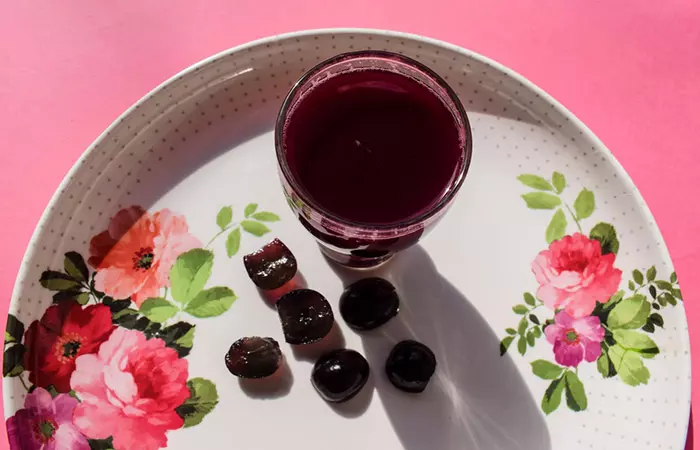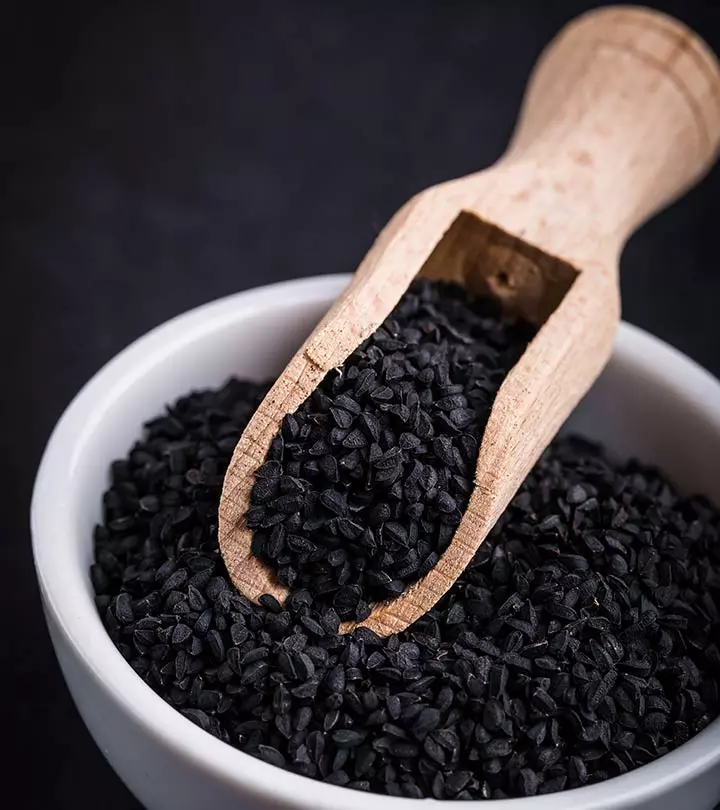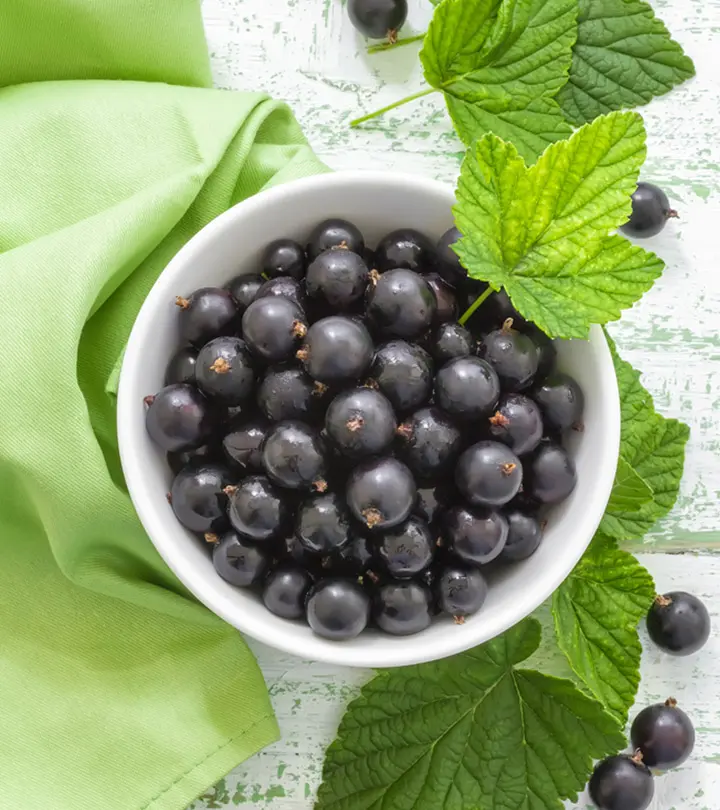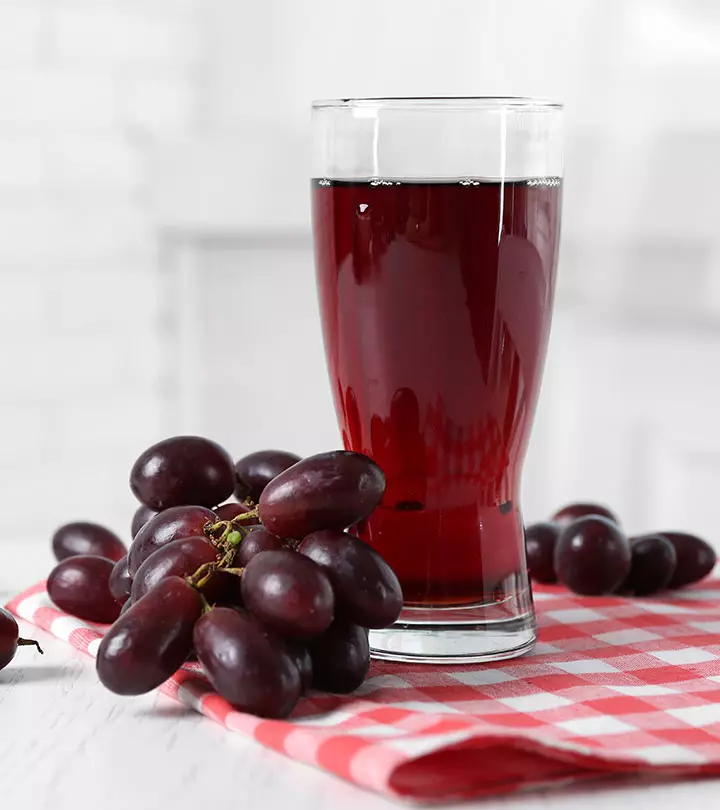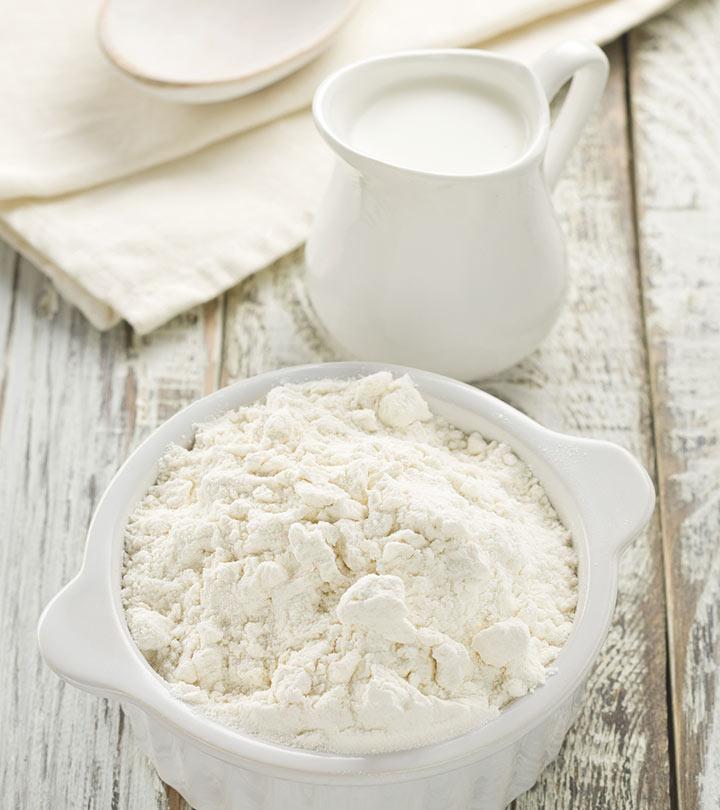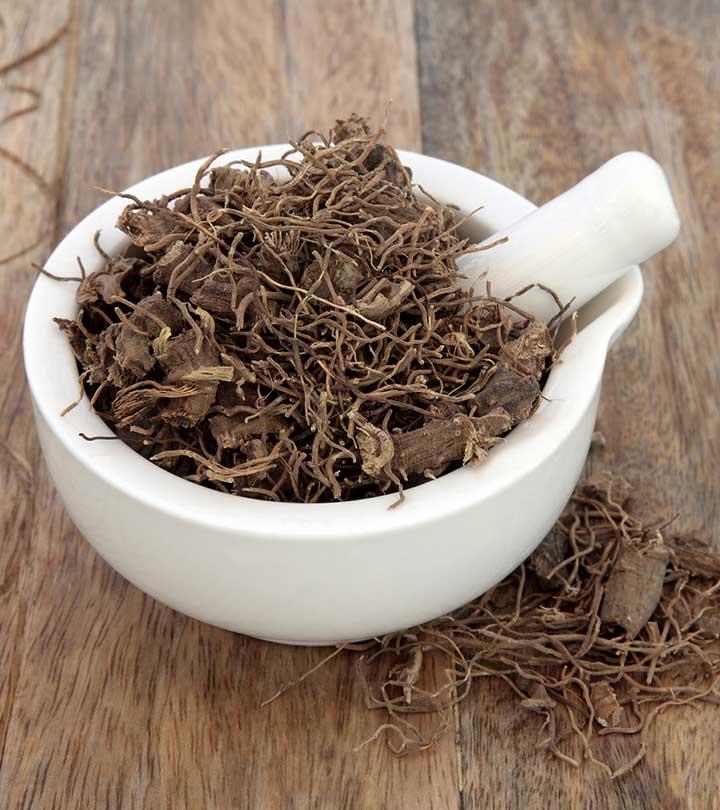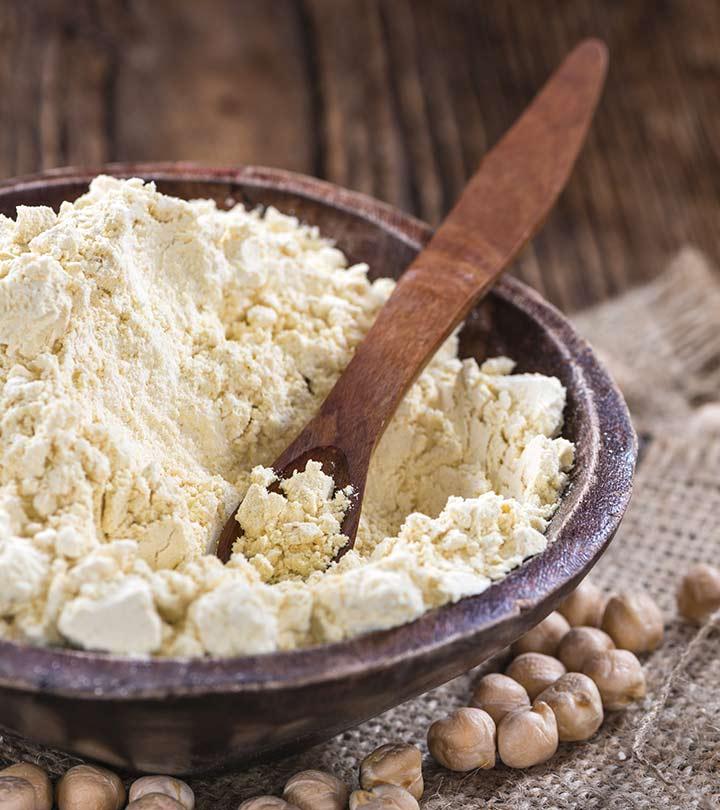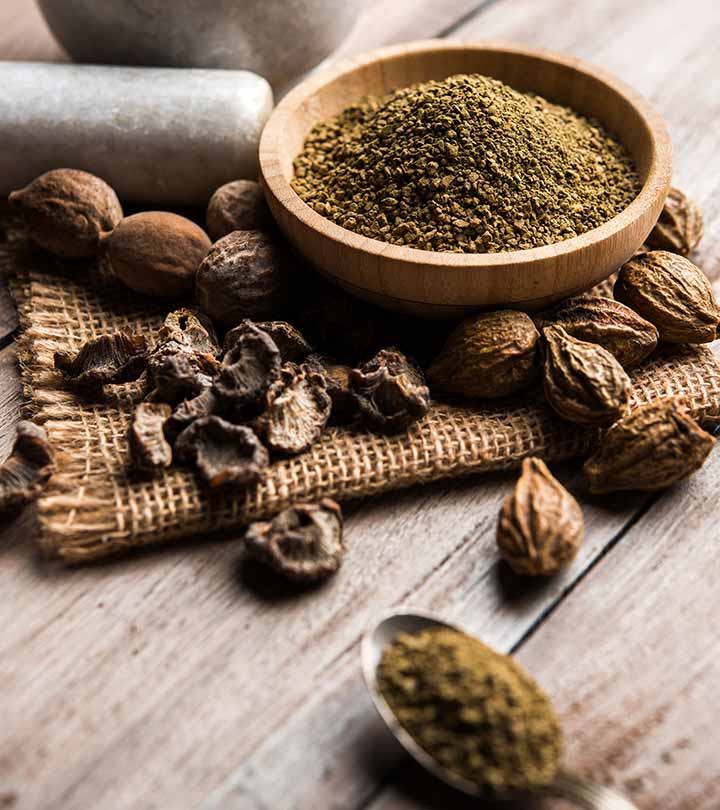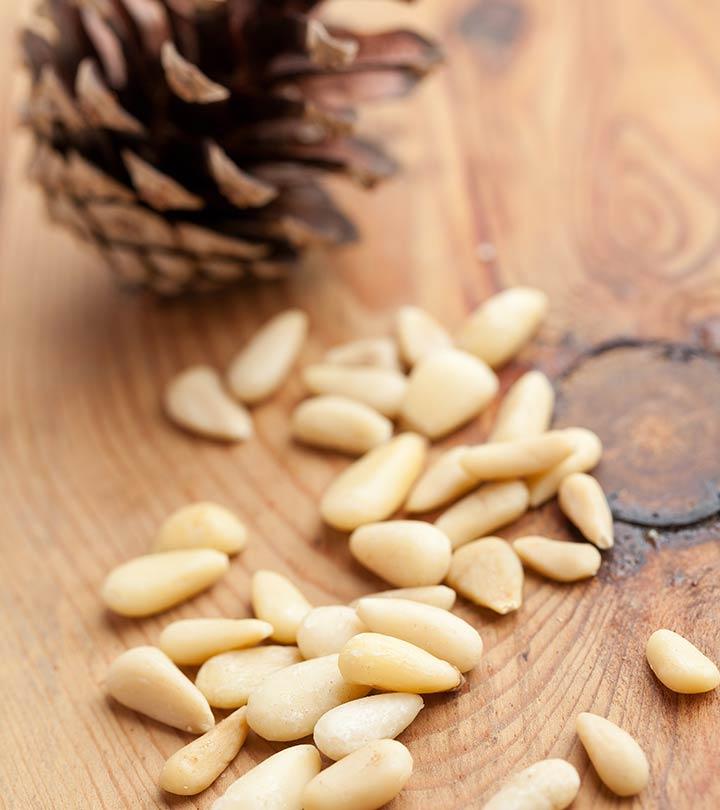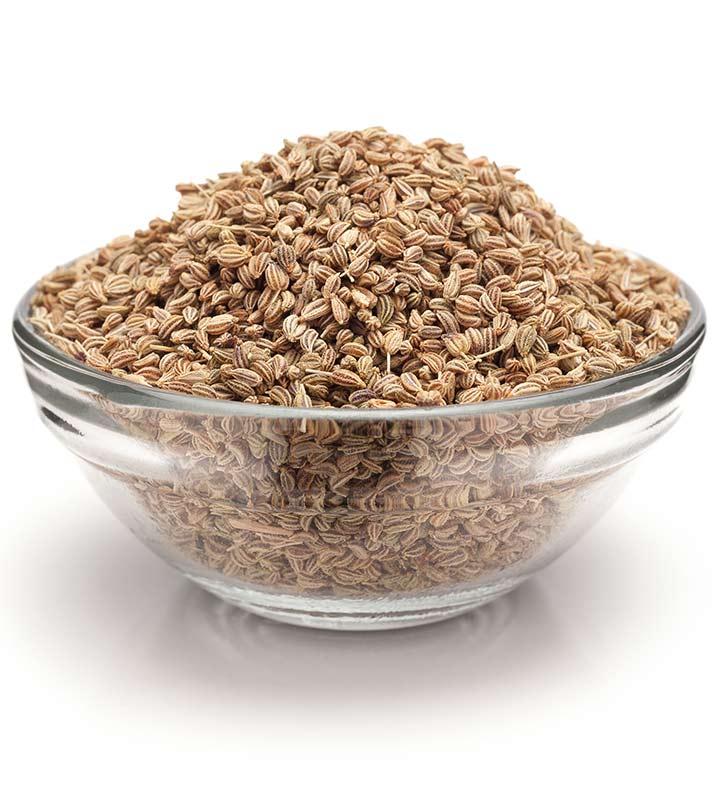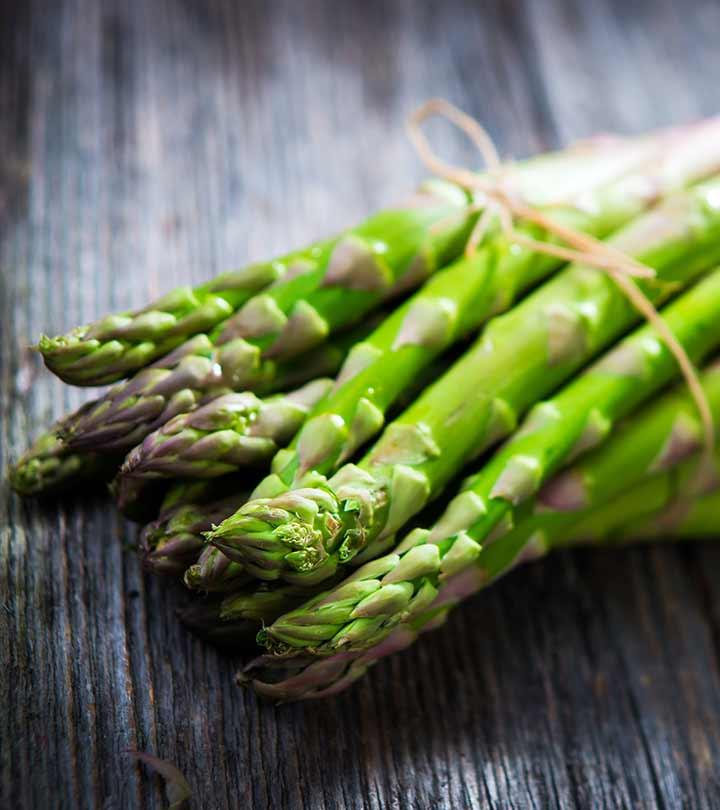11 Powerful Reasons You Must Eat Black Grapes
After learning about their health benefits, you will never miss a chance to gorge on grapes.
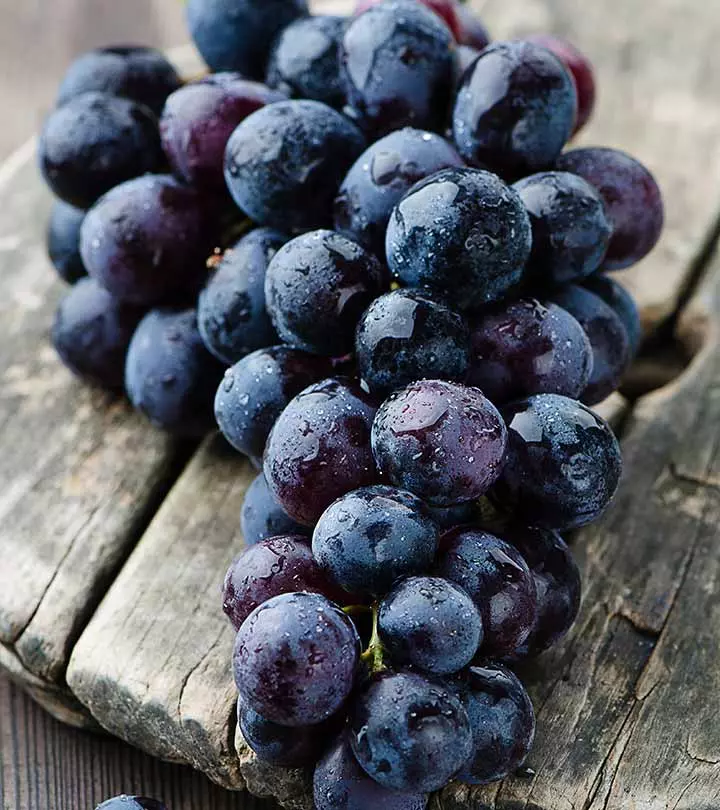
Image: Shutterstock
Black grapes benefits will sway you to add them to your diet. They are one of the most sought-after varieties of grapes. Their rich glossy appearance and delicious sweet taste have made them a consumer favorite.
Black grapes are full of powerful antioxidants. As a result, their health benefits range from managing diabetes to reducing cancer risk.
This article discusses the benefits of eating black grapes, their nutritional profile, how to use them for maximum benefits, and any potential side effects. Take a look.
 Know Your Ingredient: Black Grape
Know Your Ingredient: Black GrapeWhat Is It?
A purplish-blue fruit that grows in clusters on woody vines.
What Are Its Benefits?
This fruit can improve heart health, brain function, vision, bone health, and help manage diabetes.
Who Can Consume It?
It is safe for anyone to consume if they are not allergic.
How Often?
1 to 2 cups can be consumed daily.
Caution
In case of bleeding disorders or post-operative conditions, consult a doctor before consumption.
In This Article
How Are Black Grapes Beneficial?
Grapes come in different types – green, red, blue, and black. All varieties contain similar beneficial compounds. Of these, the darker variants seem to be more beneficial (1).
Black grapes are comparatively richer in antioxidants. They contain fiber too. Their skin is rich in phenolic acids, like caffeic acid. Due to their rich antioxidant content, black grapes benefit skin health.
These compounds are responsible for the fruit’s anti-inflammatory, anticancer, cardioprotective, and antidiabetic properties (2).
The most important compound in black grapes (and grapes, in general) is resveratrol. Resveratrol is a potent antioxidant that is extensively studied. Research states that it can fight inflammation, prevent heart disease, and even combat tumors (3).
The best way to enjoy black grapes benefits is to eat them as a whole (or even by consuming whole-grape products). The beneficial constituents in such whole-grape products can enhance the overall results (4).
 Trivia
TriviaIn the following section, we will discuss how you can benefit from the various constituents of black grapes.
What Are The Health Benefits Of Black Grapes?
Black grapes are chock-full of antioxidants like resveratrol, flavonoids, and quercetin that regulate diabetes, promote heart health, and even prevent cancer. These fruits also combat inflammation and other associated ailments.
1. May Help Manage Diabetes
The resveratrol in black grapes may improve insulin sensitivity. This can enhance your body’s ability to use glucose, thereby lowering blood sugar levels (5).
The compound also increases the number of glucose receptors on cell membranes. This may also help regulate your blood sugar levels (6).
More importantly, grapes, in general, have a mean glycemic index. Studies show that diets low in GI improve diabetes symptoms. The resveratrol in grapes also improves the functioning of pancreatic beta cells (cells that make insulin, a hormone that controls glucose levels) (7).
Pterostilbene, another compound in grapes, also helps lower blood sugar levels.
Black grapes also prevent the loss of beta cells, which is a common complication in diabetes.
2. May Promote Heart Health
The polyphenols in black grapes fight free radicals, which can cause heart disease. These compounds help treat hypertensioni High blood pressure; a reading of 140/90 or higher suggests that the blood is pushing too hard against the arterial walls. and inflammation. They also improve endothelial (of the blood vessels) function (8).
Black grapes contain flavonoids, phenolic acids, and resveratrol – all of which can reduce cardiovascular mortality (9).
These compounds also have anti-platelet effects. They prevent the aggregation of platelets (the clumping of platelets, forming a clot), thereby preventing strokes or heart attacks (9).
The potassium in grapes also promotes cardiovascular health.
3. May Prevent Cancer
The effect of grapes (in general) on cancer prevention is widely researched. The beneficial compounds in grapes were found to prevent various forms of cancer (10).
One such compound that deserves attention is resveratrol. It is more abundant in the skin of black grapes. This compound neutralizes reactive oxygen species. It also induces apoptosis (cancer cell death) and prevents cancer from spreading (11).
Resveratrol demonstrated anticancer properties against cancers of the colon, breast, prostate, and the lungs (11). This compound can supplement conservative cancer treatments (as chemo- and radiotherapy).
The seeds of black grapes contain proanthocyanidins, other beneficial compounds known to fight cancer (12).
Other powerful anticancer constituents in grapes include quercetin, catechin, and anthocyanins (13).
4. May Improve Brain Function
The resveratrol in black grapes has a role to play here as well. Intake of resveratrol can improve mood dysfunction and prevent age-related memory loss (14). Grapes also contain riboflavin, which could be beneficial for individuals with migraines.
Some rat studies show the efficacy of resveratrol in preventing Alzheimer’si A progressive neurologic disorder that shrinks the brain and kills its cells, leaving the patient confused and with severe memory loss. (15). We need more studies to confirm this in humans, though.
5. Promote Vision Health
Studies show people living in the Mediterranean basin tend to have fewer rates of cataracts than other aging populations. The diets of these populations include grapes and wine – so we can make a connection (16).
Black grapes (and grapes, in general) fight free radicals and make the eye lens more resistant to aging (16).
An antioxidant-rich diet, well begun at a young age, can dramatically reduce the risk of age-related vision issues.
Black grapes contain lutein and zeaxanthin, which are carotenoids that are known to help maintain good eyesight. According to a mouse study published in Nutrition, a diet containing grapes provides significant protection to the retina by shielding against oxidative stressi A condition caused by an imbalance between the creation and buildup of oxygen radicals in cells and the ability to detoxify them. (17). It can also prevent blindness.
Grapes have the ability to prevent loss of vision and macular degeneration caused by aging. Studies and research were conducted in this light, and they concluded that having grapes every day reduces chances of developing ARMD or age-related macular degenerationi An eye condition caused by damage to the central part of the retina (macula) that is common in old age. by more than 30%. The antioxidants in grapes, especially the flavanoids, eliminate the harmful effects of free radicals. Free radicals can cause eye-related disorders like cataractsi The gradual development of blurry vision as the eye's naturally clear lens becomes clouded, interfering with daily activities. .
6. May Strengthen Bones
The resveratrol in the grapes may improve bone mineral density (18), thereby enhancing bone health. The effects were observed only in rats, though. We need more human studies to corroborate this fact.
7. May Fight Inflammation
Black grapes contain various important compounds that fight inflammation. These include flavans, anthocyanins, flavonols, and stilbenes (19).
Black grapes also work well in treating inflammatory arthritisi A condition that causes persistent inflammation and affects several joints, especially the hands and feet. . The resveratrol works as good as NSAIDS (non-steroidal anti-inflammatory drugs) (20).
Black grapes may also aid hemorrhoid treatment. This condition is also called piles, and it occurs when the veins around the anus become inflamed and swollen.
The flavonols in black grapes can maintain the integrity of the veins. They also strengthen your veins, thereby relieving symptoms of hemorrhoids (21).
8. May Aid Sleep
There is very little research on this. Grapes, in general, are good sources of melatonin (the sleep hormone) (22). Eating black grapes right before sleeping may improve sleep quality.
9. May Promote Longevity
In various animal species, resveratrol had shown to lengthen lifespan. This compound in black grapes stimulates a family of proteins called sirtuins. Sirtuins are linked to longevity (23).
Resveratrol also mimics the beneficial effects of calorie restriction, and this, in turn, might promote longevity (24). The resveratrol in black grapes benefits weight loss (25). However, more studies are needed to validate this fact.
Though they are small fruits, their benefits are immense. Anecdotal evidence states that black grapes may also aid digestion and boost the immune system. A lot of research is being done on antioxidants and how they benefit human health. Black grapes are among the richest sources of antioxidants.
10. May Boost Skin Health
Black grapes contain anthocyanins that may help in treating acne and other minor skin problems. They may also be beneficial in treating serious dermal diseases such as skin cancer (26). Also, the antioxidant and anti-inflammatory properties of black grapes may protect against the damaging effects of UV radiation and reduce the signs of aging. The proanthocyanidins in the grape seeds possess high anti-inflammatory properties and may aid in wound healing and reduce skin irritation (27).
11. May Fight Bacteria
The antioxidants in black grapes may help control the growth of antibiotic-resistant bacteria and other toxin-producing molds (28). They also may help prevent bacterial infections.
We saw some of the important constituents of black grapes. In the following section, we will take a look at the other compounds in black grapes that make them a must-have in your kitchen.
What Is The Nutritional Profile Of Black Grapes?
| text | text | cup 138 g | Value per 100 g |
|---|---|---|---|
| Proximates | |||
| Energy | kcal | 90 | 65 |
| Protein | g | 0.99 | 0.72 |
| Total lipid (fat) | g | 0.99 | 0.72 |
| Carbohydrate, by difference | 6 | 24.00 | 17.39 |
| Fiber, total dietary | g | 1.0 | 0.7 |
| Sugars, total | 6 | 23.00 | 16.67 |
| Minerals | |||
| Calcium, Ca | mg | 19 | 14 |
| Iron, Fe | mg | 0.36 | 0.26 |
| Sodium, Na | mg | 0 | 0 |
| Vitamins | |||
| Vitamin C, total ascorbic acid | mg | 15.0 | 10.9 |
| Vitamin A, IU | IU | 99 | 72 |
| Lipids | |||
| Fatty acids, total saturated | g | 0.000 | 0.000 |
| Fatty acids, total trans | g | 0.000 | 0.000 |
| Cholesterol | mg | 0 | 0 |
Source: USDA
After learning all that about black grapes nutrition, eating them seems like a no-brainer. Consuming these fruits is simple and easy. Pop them into your mouth, one after the other.
But if you are craving for some variety, we have some suggestions for you.
How To Include Black Grapes In Your Diet
The best way to eat black grapes is fresh. Black grape juice could especially be beneficial for those concerned of choking but keen to indulge in the fruit’s numerous advantages. Try to avoid grape jellies or jams as they have added sugars and may not be as beneficial.
The following pointers should give you some ideas:
- Freeze grapes and have them as a dessert/snack on a hot day.
- Add whole black grapes to your breakfast smoothie.
- Slice black grapes and add them to your chicken salad.
- Add whole black grapes to a fruit salad.
- Drink 100% grape juice (along with the fiber).
Corrina, a blogger, spoke about how she brought out the beautiful flavor of black grapes for her desserts. She said, “I wondered what grapes would be like if they were roasted, and imagined the juice bursting out making a lovely syrup. I decided to try it and am so glad I did! Roasting grapes really brings out their sweetness and makes them extra juicy (i)”.
 Quick Tip
Quick TipBlack grapes are easy to eat. There is no reason you shouldn’t include them in your diet.
Or is there?
Do Black Grapes Have Any Side Effects?
Black grapes are generally safe for most people. But some individuals need to exercise caution.
- Issues During Pregnancy And Lactation
This has more to do with supplements. The safety of supplements containing resveratrol during pregnancy and lactation has not been established (3). However, it is better you exercise caution with black grapes too as they are among the richest sources of resveratrol. Please consult your doctor.
- May Cause Bleeding Issues
We have seen that the compounds in black grapes can have antiplatelet effects. They work against the formation of blood clots (9). This can increase bleeding in susceptible individuals.
Though there are no reports of severe bleeding in humans, please take care. Talk to your doctor if you have any specific bleeding issues.
Also, stop the intake of grapes at least two weeks before a scheduled surgery.
Infographic: 5 Amazing Health Benefits Of Black Grapes
Black grapes contain vital vitamins, minerals, and antioxidants that may improve hair and skin health, and may prevent cancer. We have rounded up the 5 reasons why you should include black grapes in your diet. Check out the infographic below to know more! Illustration: StyleCraze Design Team
Black grapes are delicious fruits with high antioxidant and nutrient values. They are used in making wine, jams, jellies, and sauces. Consumption of black grapes may help manage diabetes, promote heart health, reduce cancer risk, improve brain function, and enhance vision. You can incorporate black grapes into your diet in many ways. While they are generally considered safe for consumption, some people need to exercise caution to avoid side effects. If you have any bleeding disorders or have a scheduled surgery, talk to your doctor before consuming them.
Frequently Asked Questions
How to buy the right black grapes?
Ensure the grapes you pick are firm and plump. They should not have wrinkles. Avoid wet, shriveled, or moldy grapes.
Can we eat black grapes at night?
Yes. One of the benefits of eating grapes at night is that they may boost sleep quality due to their melatonin content.
Are black grapes good for hair growth?
Possibly. Animal studies show that grape seeds contain proanthocyanidins that may promote hair growth (29). However, more studies on humans are warranted.
Are black grapes high in sugar?
Yes, black grapes are high in natural sugar. However, they are low in calories.
Are black grapes good for high blood pressure?
Yes, grapes are good sources of potassium that helps lower blood pressure (30).
Key Takeaways
- Resveratrol in black grapes lowers blood sugar levels and improves insulin sensitivity and the functioning of pancreatic beta cells.
- It also destroys cancer cells and restricts their spread.
- Black grapes improve mood and prevent age-related memory loss.
- Consume black grapes moderately to avoid any side effects.

Image: Stable Diffusion/StyleCraze Design Team
Personal Experience: Source
StyleCraze's articles are interwoven with authentic personal narratives that provide depth and resonance to our content. Below are the sources of the personal accounts referenced in this article.
i. Cinnamon Honey Roasted Grapes – A Perfect Dessert or Toppinghttps://confarreocreates.wordpress.com/2017/11/23/cinnamon-honey-roasted-grapes-a-perfect-dessert-or-topping/
References
Articles on StyleCraze are backed by verified information from peer-reviewed and academic research papers, reputed organizations, research institutions, and medical associations to ensure accuracy and relevance. Read our editorial policy to learn more.
- A Comparison Of Total Antioxidant Capacities Of Concord, Purple, Red, And Green Grapes Using The Cuprac Assay
https://www.ncbi.nlm.nih.gov/pmc/articles/PMC4665517/ - Polyphenolic Contents And Antioxidant Properties Of Different Grape (V. Vinifera, V. Labrusca, And V. Hybrid) Cultivars
https://www.ncbi.nlm.nih.gov/pmc/articles/PMC3763574/ - Resveratrol
https://lpi.oregonstate.edu/mic/dietary-factors/phytochemicals/resveratrol - Resveratrol, In Its Natural Combination In Whole Grape, For Health Promotion And Disease Management
https://nyaspubs.onlinelibrary.wiley.com/doi/abs/10.1111/nyas.12798 - Modulation Of Sirt1-Foxo1 Signaling Axis By Resveratrol: Implications In Skeletal Muscle Aging And Insulin Resistance
https://pubmed.ncbi.nlm.nih.gov/25612477/ - Resveratrol And Diabetes
https://pubmed.ncbi.nlm.nih.gov/24841877/ - Type 2 Diabetes And Glycemic Response To Grapes Or Grape Products
https://pubmed.ncbi.nlm.nih.gov/19625702/ - The Relevance Of Dietary Polyphenols In Cardiovascular Protection
https://pubmed.ncbi.nlm.nih.gov/28356040/ - Grapes And Cardiovascular Disease
https://www.ncbi.nlm.nih.gov/pmc/articles/PMC2728695/ - Grapes And Human Health: A Perspective
https://pubmed.ncbi.nlm.nih.gov/18662007/ - The Occurrence Of Resveratrol In Foodstuffs And Its Potential For Supporting Cancer Prevention And Treatment. A Review
https://pubmed.ncbi.nlm.nih.gov/29517181/ - Anticancer And Cancer Chemopreventive Potential Of Grape Seed Extract And Other Grape-Based Products
https://www.ncbi.nlm.nih.gov/pmc/articles/PMC2728696/ - Combination Chemoprevention With Grape Antioxidants
https://pubmed.ncbi.nlm.nih.gov/26829056/ - Resveratrol Prevents Age-Related Memory And Mood Dysfunction With Increased Hippocampal Neurogenesis And Microvasculature, And Reduced Glial Activation
https://pubmed.ncbi.nlm.nih.gov/25627672/ - Dietary Resveratrol Prevents Alzheimer’s Markers And Increases Life Span In Samp8
https://pubmed.ncbi.nlm.nih.gov/23129026/ - Could Grapes Be The ‘magic Bullet’ For Cataracts?
https://www.unthsc.edu/newsroom/story/grapes-magic-bullet-cataracts/ - Protective Effects Of A Grape-Supplemented Diet In A Mouse Model Of Retinal Degeneration
https://pubmed.ncbi.nlm.nih.gov/26732835/ - Effects Of Resveratrol On Bone Mineral Density In Ovarectomized Rats
https://pubmed.ncbi.nlm.nih.gov/23674958/ - Grape Consumption Increases Anti-Inflammatory Markers And Upregulates Peripheral Nitric Oxide Synthase In The Absence Of Dyslipidemias In Men With Metabolic Syndrome
https://www.ncbi.nlm.nih.gov/pmc/articles/PMC3546615/ - Best Fruits For Arthritis
https://www.arthritis.org/health-wellness/healthy-living/nutrition/healthy-eating/best-fruits-for-arthritis - Soothing, Natural Cures For Hemorrhoids
https://www.pacificcollege.edu/news/blog/2014/11/01/soothing-natural-cures-hemorrhoids - Dietary Sources And Bioactivities Of Melatonin
https://www.ncbi.nlm.nih.gov/pmc/articles/PMC5409706/ - Future Directions Of Resveratrol Research
https://pubmed.ncbi.nlm.nih.gov/29951589/ - Longevity Nutrients Resveratrol, Wines, And Grapes
https://www.ncbi.nlm.nih.gov/pmc/articles/PMC2820197/ - Resveratrol For Weight Loss In Obesity: An Assessment Of Randomized Control Trial Designs In Clinicaltrials.Gov
https://www.ncbi.nlm.nih.gov/pmc/articles/PMC9002514/ - Phytochemical Profiles, Antioxidant and Antibacterial Activities of Grape (Vitis vinifera L.) Seeds and Skin from Organic and Conventional Vineyards
https://www.ncbi.nlm.nih.gov/pmc/articles/PMC7694017/ - Relevance of Natural Phenolics from Grape and Derivative Products in the Formulation of Cosmetics
https://www.mdpi.com/2079-9284/2/3/259/htm - Antimicrobial properties of black grape (Vitis vinifera L.) peel extracts against antibiotic-resistant pathogenic bacteria and toxin producing molds
https://pubmed.ncbi.nlm.nih.gov/26729960/ - Resveratrol For Weight Loss In Obesity: An Assessment Of Randomized Control Trial Designs in ClinicalTrials.gov
https://pubmed.ncbi.nlm.nih.gov/9833041/ - Concord Grape Juice Supplementation Reduces Blood Pressure In Korean Hypertensive Men: Double-Blind, Placebo Controlled Intervention Trial
https://pubmed.ncbi.nlm.nih.gov/15630270/
Read full bio of Merlin Annie Raj
Read full bio of Arshiya Syeda
Read full bio of Sindhu Koganti









